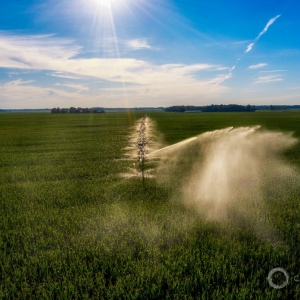The Stream, September 29, 2020: A U.K. Coalition Demands End to Sewage Discharge in English Rivers
The Global Rundown
A petition to end sewage discharge in the U.K.’s rivers will hit the environment secretary’s desk at the end of the month. Pakistan’s devastating monsoon season wreaks havoc on the nation’s most vulnerable. Ethiopia’s Prime Minister says his country doesn’t intend to use the Grand Ethiopian Renaissance Dam to harm surrounding countries. The United States’ Department of Health and Human Services is looking to test the sewage of over 30 percent of Americans for Covid-19. Two New Mexico Universities team up to provide clean water to rural Navajo residents.
“So many residents on reservations have to drive sometimes 100 miles to get water and bring it back to the house in bottles. Well water is available to a lot of tribes, but is not always in great shape.” – Robert Balch, director of the Petroleum Recovery Research Center at New Mexico Tech. New Mexico Tech has partnered with Navajo Technical University to address water issues in rural Navajo areas, starting a pilot project to build and operate filtration units for well sites across the vast reservation. The project includes plans to treat dirty water with thin polymer “straws” that have a coating to help filter contaminants like salt, phosphates nitrates and heavy metals. Water at windmills, tanks and wells will be treated for agricultural use. But with state approval, technology could treat drinking water supplies. U.S. News
Latest WaterNews from Circle of Blue
One Michigan County Tells of a Nation Plagued By Pollution – Farms housing thousands of animals are one of several sources contaminating the Pine River and dividing a mid-Michigan community.
HotSpots H2O: Conflict over U.S.-Mexico Water Treaty Escalates at Farmers Take La Boquilla Dam – Tensions between Mexico and the United States over water intensified month as months of Mexican farmers seized control of La Boquilla dam in protest over mandatory water releases.
What’s Up With Water – September 28, 2020 – This week’s episode looks at an island that is being built in the Mekong River by a well-connected real estate developer in Cambodia and the University of Minnesota, who is set to lead a major effort to amplify production of a new strain of wheatgrass.
By The Numbers
136 The number of people who have died, along with thousands who have been displaced, during Pakistan’s monsoon season this year. In one of the country’s worst flood-affected areas near the city of Badin, temporary camps have been set up for families living in hastily erected shelters on the roadside. Flies and mosquitos are constant in these communities and pose serious health risks to residents. Some walk long distances in search of fresh water, while many others settle for the alternative—drinking from the dirty water along the roadside that children play in. The effects of climate change are being increasingly felt in Pakistan’s Sindh region, especially in communities of subsidence farmers, nomadic tribes and those living in urban slums. The Independent
90 percent The amount of water from the Nile that provides Egypt its fresh water supply. Ethiopian Prime Minister Abiy Ahmed told the United Nations on Friday that his country has “no intention” of using the Grand Ethiopian Renaissance Dam to harm Egypt or Sudan. The three countries failed to strike a deal on the operation before Ethiopia started filling the reservoir behind the dam in July, but all three states have returned to African Union-led mediation. Egypt has expressed fears that the dam would have a devastating effect on its economy, while Abiy told the United Nations that the project contributes to the conservation of water resources and that the dam would meet electricity demands for the nation’s citizens. Reuters
In context: HotSpots H2O: Tensions Rise in Horn of Africa as Ethiopia Fills Controversial Dam
Science, Studies, and Reports
The Department of Health and Human Services is seeking bids from contractors that can carry out a plan to test up to 30 percent of the country’s wastewater to act as an “early warning sign” for coronavirus outbreaks. According to a contract notice posted last week, the surveillance of sewage water for the virus can detect an increase in Covid-19 cases five to 11 days earlier than standard clinical testing. The HHS-backed initiative will begin by assembling a network of about 100 wastewater treatment plants across 42 states, surveilling nearly 10 percent of the country. The notice added that the government could exercise an option to then extend the program to account for more than 100 million Americans, or more than 30 percent of the population. Wastewater surveillance has long been used by epidemiologists to track and detect other infectious diseases such as polio. CNBC
In context: Enthusiasm But Obstacles in Using Sewage to Monitor Coronavirus
On the Radar
A coalition of river and sea organizations in the United Kingdom, including surfers, canoeists and environmental activists, intend to deliver a petition calling for an end to sewage discharges into rivers and coastal waters to George Eustice, the environment secretary, next month. The coalition said they want to see sewage discharges reduced to zero by 2030 after a report published earlier this month said all English rivers failed to meet quality tests for pollution under the EU’s water framework directive. The petition has been signed by 30,000 members of the public so far. The Guardian
Jane is a Communications Associate for Circle of Blue. She writes The Stream and has covered domestic and international water issues for Circle of Blue. She is a recent graduate of Grand Valley State University, where she studied Multimedia Journalism and Women, Gender and Sexuality Studies. During her time at Grand Valley, she was the host of the Community Service Learning Center podcast Be the Change. Currently based in Grand Rapids, Michigan, Jane enjoys listening to music, reading and spending time outdoors.






Leave a Reply
Want to join the discussion?Feel free to contribute!